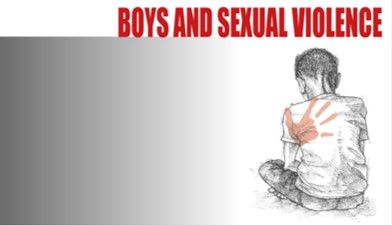Boys are as abused, neglected as girls – CPTCSA calls for prevention

-
The Center for the Prevention and Treatment of Child Sexual Abuse (CPTCSA), has called for protection of boys whose situations have been neglected in interventions that empower girls and women.
-
The non-government child-focused institution revealed the result of the study, “Caring for Boys Affected by Sexual Violence,” a four-country research in 2018 that involves four countries including the Philippines.
For the first time, a non-government child-focused institution, the Center for the Prevention and Treatment of Child Sexual Abuse (CPTCSA), takes the cudgels for boys whose situations have been neglected in interventions that empower girls and women.
Zenaida Rosales, executive director of CPTCSA, said the organization conducted a major global scoping study with the international network Family for Every Child Global Alliance that explored the realities of boys who experience sexual violence.
The study, “Caring for Boys Affected by Sexual Violence,” is a four-country research in 2018 that involves the Philippines, Cambodia, India and Nepal. There were 79 respondents from the Philippines, originally 100 from five population groups but the researchers were not able to achieve this number because of the difficulty of getting male victims who are willing to speak.
“We believe that the issue of boys as victims of sexual abuse is an issue that we have neglected but whose time has come for us to embrace,” says Rosales. “Boys are as sexually abused and more physically abused and neglected than girls. Boys also experience incarceration more than girls. Yet our energies and neighborhood conversations about sexual abuse seem to focus only on our girls,” she adds.
Rosales says, “We need to balance the good work we do with girls with good work to do equally for boys. We all need to hear the stories of the lives of boys, the pressures they face, the limited support that they receive, and the consequences of the cultural and social expectations we place on our males.”
The research concluded that there are varying influences on boys regarding their views on sexuality, their views on being male and on how these influences relate to potential perpetration or victimization regarding the abuse of boys. The respondents indicate that the influence of their peers, their experiences in school, and their use and exposure to multimedia has a greater impact than the influence of the family in shaping their views.
An important sub-set of multimedia influence is that of pornography and its impact on boys’ understanding of and shaping of their sexuality, sexual behaviors that are acceptable and their engagement in sex.
The research also noted that expectations placed on boys, as well as assumptions about being a male, can increase the exposure and vulnerability of boys on being abused.
Closely related to this factor is that cultural, family, and societal definitions of the roles of males and the expectations held out for boys in being male result in boys being less likely to report abuse or to seek support when abused. Similarly, these factors impact the ways in which boys view and experience services that are provided.
Further, the research said boys view abuse differently when there is a transactional nature to the abuse. This is especially true of low-income males who see financial or material transactions as not abuse.
The role of the father, within the context of what respondents view as the influence of the family, suggests the father is often absent and is a less influential factor than the mother except for instances of the child being a perpetrator.
Individual and societal views of homosexuality play a role in the development of young boys’ ideas about sexual behavior and as such, impact on the experience of and means to address the sexual abuse of boys.
Services for boys face several societal and individual hurdles to overcome in order to meet the needs of perpetrators and victims of male sexual abuse. There’s no clear indication of uniform strategies that are successful. However, a consistent variable is the importance of trust in seeking help and recognizing the societal norms that impede boys from reporting abuse.






